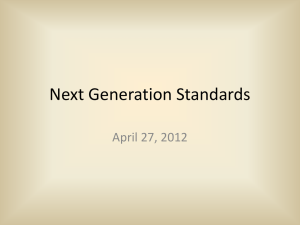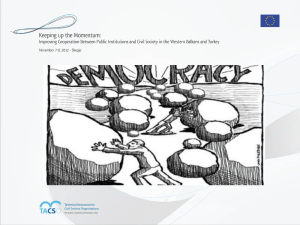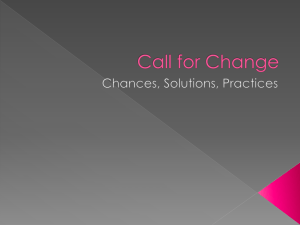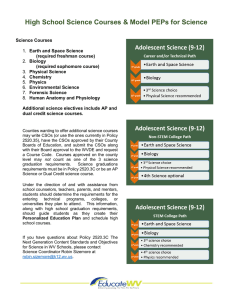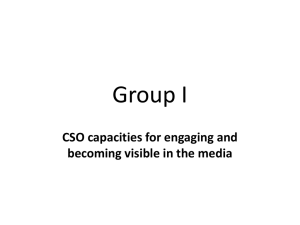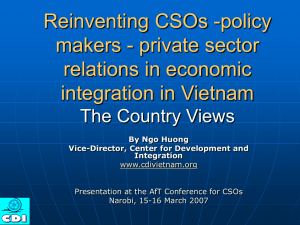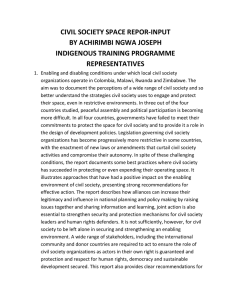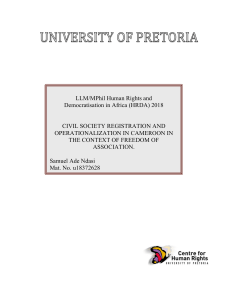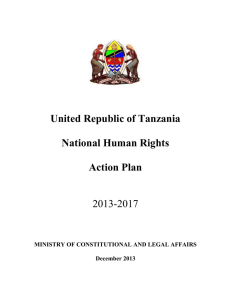Planning for 2012 Project Activities Presented By- Ankur Brauah VIKSAT, Ahmedabad
advertisement
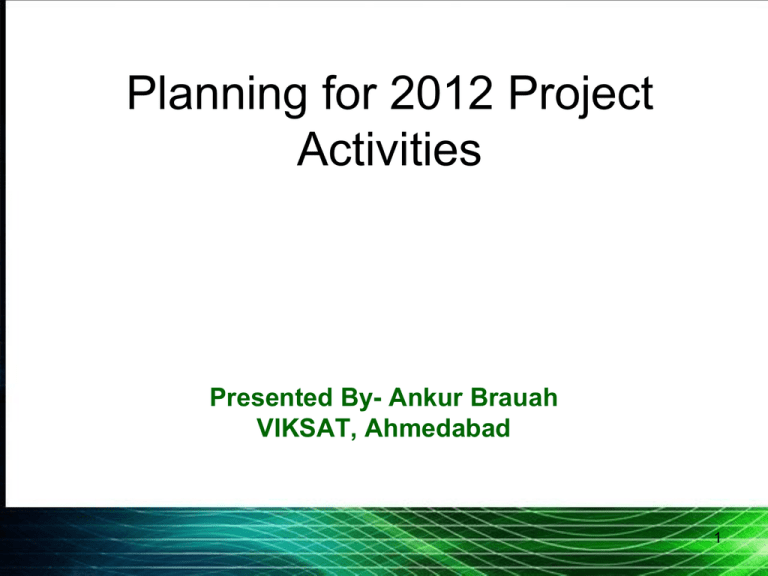
Planning for 2012 Project Activities Presented By- Ankur Brauah VIKSAT, Ahmedabad 1 Key findings of the baseline survey • A huge gap between Awareness and Practice of DSM • Farmers faces highest power supply problems, while awareness among them is less • Initial cost of RE is a major barrier in adopting it • Awareness about BEE is less, especially among rural consumers • CSOs and other institutions are less prepared to pay for clean energy in comparison to industries • Role of CSOs and consumers in tariff regulation is not known by CSOs • CSOs are ready to work with energy issue but lacks in information and capacities 2 Project Activities Ahead • • • • • • Drafting and finalization of state paper Reference Group Meeting Training Workshop Consumer Interface Meetings Final Consumer Survey Policy Advocacy Meetings 3 Training workshop- Identified Thematic Areas • Electricity Tariff Regulation in Gujarat – Role of consumers and CSOs • Trend and Future of Power Pricing – how DSM can help • A review of RE Technology and Cost for different users viz. Farmers, Industries and Institutions • A cost benefit analysis of initial investment and saving in electricity bills by RE and EE products • Opportunity and Resources for CSOs to work with the Energy Issues 4 Implementation Plan Time period: 2nd Week of February 2012 Participants • Resource person and participants from Research, Technical, Govt. institutions and industries viz. GERMI, GEDA, SPERI, DST, Suzlon etc. • All project partners • Major CSOs of the state Resource materials • Resource materials will be developed from findings of baseline survey and relevant literature Design • Four Plenary Sessions on thematic areas • Floor discussions • Focused interaction with partners on identified issues Expected Outcome • Clarity in understanding on issues related to baseline survey findings • Clarity in issues and approach in organizing consumer interface meetings • Preparedness of project partners and CSOs to take the energy issue as their thrust area • Consolidation of learning and prioritize advocacy issues 5 Consumer Interface Meetings Time period: March 2012 Design • 8-10 meetings at district and block level • Project partners will take a lead to plan and organize the meetings • Local resource persons will be identified by partners Participants • Consumers who will be identified from working areas of partner organizations • The consumers covered in the baseline survey will be given priority as participants Key inputs • Climate change implications on consumers • Energy rush: challenges and sustainability issues • Subsidized energy: Future demand and pricing • RE and EE technology: Viability and cost effectiveness Follow up actions • Partners will keep a track of activities undertaken with consumers • The learning will be utilized for designing final consumer survey Expected Outcomes • The consumers will have better information and choice of informed decision making • The partners will have better understanding about challenges and opportunities to work with energy issues at ground level • The learning will help in designing remaining activities and effective advocacy 6 Remaining Activities • Final Consumer Survey will be designed based on learning of capacity building activities and consumer’s response to follow up actions • Consolidated learning and issues identified during final survey will be taken for policy advocacy meetings 7 8
